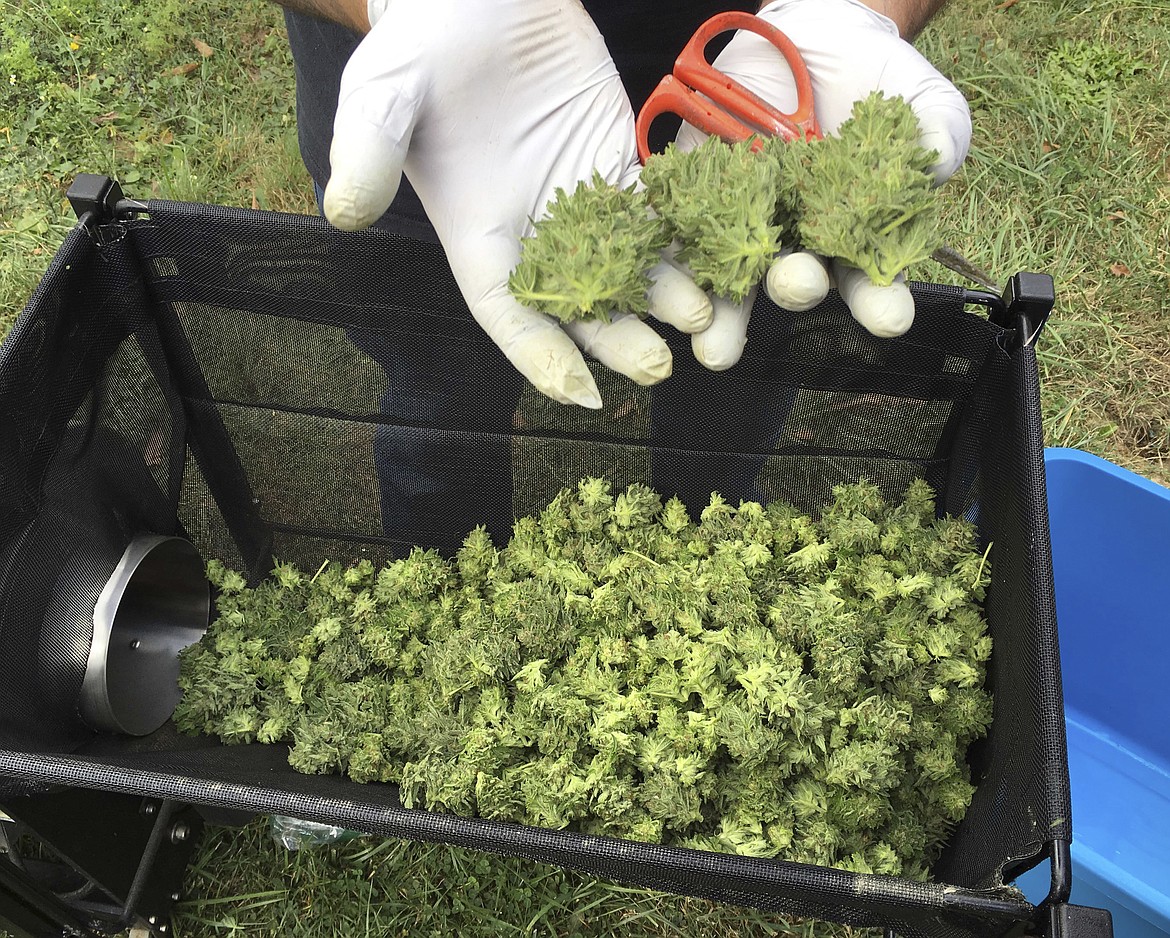Gianforte plan wouldn't use pot revenue for public lands, vets
Montana voters moved to legalize recreational marijuana in November after being told that tax revenue from pot sales would be used for public lands, veterans' services and health care for elderly people and those with disabilities, among other programs.
The official text of Initiative 190 described, in precise percentages, how that revenue "must" be distributed, and the committee backing the measure cited those public programs in its legalization push.
Ballot language vetted by the state attorney general's office said marijuana taxes and fees "will generate about $48 million annually by 2025," and those taxes "will contribute to the general fund and special revenue accounts for conservation, veterans’ services, substance abuse treatment, health care and local governments."
But the Montana Constitution makes clear that only the Legislature can "appropriate" taxpayer money. The spending plan detailed in I-190 is ultimately a set of recommendations, not promises.
That was highlighted on Thursday when Gov. Greg Gianforte and his budget director, Kurt Alme, unveiled their first state budget proposal – a blueprint embraced by Republican lawmakers who control both the House and Senate.
"We plan to recognize the voters' wishes in implementing I-190," Alme said. But the governor's plan, he acknowledged, would use marijuana tax revenue for a narrower selection of programs than the initiative calls for.
"I believe that our Constitution reserves appropriation of funds to the state Legislature. What we are requesting in this budget is that revenues from the legalization of marijuana be prioritized for two things: one is addiction recovery, and secondly, economic development," Alme said. "So that is different than what was in the initiative, but that right is reserved to the Legislature."
Some conservation groups were quick to criticize the proposal and called on the Legislature to preserve I-190's funding provisions for parks, trails and public-land access.
"Although we're pleased to see Gov. Gianforte’s budget fund many of the state agencies and outdoor programs we care about, we’re disappointed he chose to divert new revenue approved by voters away from our public lands and conservation," Whitney Tawney, executive director of Billings-based Montana Conservation Voters, said in a statement Thursday. "We look forward to working with the Legislature to restore the much-needed funding to protect our outdoor heritage."
Likewise, the Montana Wildlife Federation, a group of hunters, anglers, conservationists and landowners, called the budget "a good starting point" but said the revenue should go "where directed by voters."
"We are concerned the budget would short-change a promising revenue source intended to enhance public access and protect working lands," the MWF said in a statement. "Our groups endorsed the legalization and conservation funding ballot measures which passed with broad, bipartisan, statewide support in November 2020. The will of the voters of Montana should be respected by all elected officials in our state."
THE LANGUAGE of the ballot measure has been questioned before.
In a last-ditch effort to block I-190 in October, an anti-marijuana group called Wrong for Montana asked the state Supreme Court to throw out the measure, saying it would illegally earmark money to be spent for specific purposes, circumventing the role of the Legislature. The group points to Article III, Section 4 of the Montana Constitution, which says, "The people may enact laws by initiative on all matters except appropriations of money and local or special laws."
The Supreme Court rejected the case on procedural grounds, but Wrong for Montana filed another lawsuit in Lewis and Clark County District Court that is still pending.
Wrong for Montana's treasurer, Steve Zabawa, argues voters were misled by I-190 and the group that promoted it, New Approach Montana.
"These guys said they 'will' put 10% in the general fund, that they 'will' fund conservation programs, they 'will' fund veteran services, they 'will' fund drug-addiction places and they 'will' put money in. They don't say 'may.' They candy-coated legalization of marijuana," Zabawa said.
Wrong for Montana's lawsuit hinges on the meaning of the term "appropriation" and raises legal questions seen in a previous suit over Initiative 149, the Montana ballot measure that raised taxes on tobacco products in 2004.
After tobacco companies and other groups sued to block I-149, a district judge in Helena changed the ballot language explaining the initiative, saying the original wording prepared by the attorney general's office was misleading and inaccurate. But the judge allowed the measure to remain on the ballot, saying it would deposit money into specific state accounts but would not effectively authorize spending. The state Supreme Court declined to weigh in on that case, too.
PEPPER PETERSEN, who led the New Approach Montana campaign, is now president and CEO of a lobbying group called the Montana Cannabis Guild. He said the revenue apportionments in I-190 are essentially recommendations to the Legislature.
"It has always been the responsibility of the Legislature to determine where all tax dollars generated from legal cannabis sales go," Petersen said in an email Friday. "We would hope that the Legislature keep the conservation of our great state in mind as they do their duty and tend to the state's finances."
Gianforte spokeswoman Brooke Stroyke defended the governor's plan to devote marijuana tax revenue to the Healing and Ending Addiction through Recovery and Treatment Fund, which also would receive funding from the state's settlement with tobacco companies.
"Gov. Gianforte believes that one of the most important things we must do is confront the drug epidemic, which is why his budget devotes marijuana tax revenues to the HEART Fund, funding a full continuum of substance abuse prevention and treatment programs for communities," Stroyke said in an email.
Asked about other provisions of I-190 that wouldn't be fulfilled under Gianforte's plan, Stroyke said the proposed budget would still benefit veterans because it "invests $3 million in property [tax] relief for low-income Montanans, including disabled veterans."
Reporter Chad Sokol can be reached at 758-4434 or csokol@dailyinterlake.com


